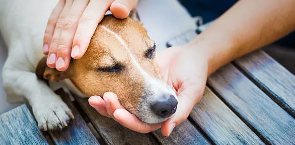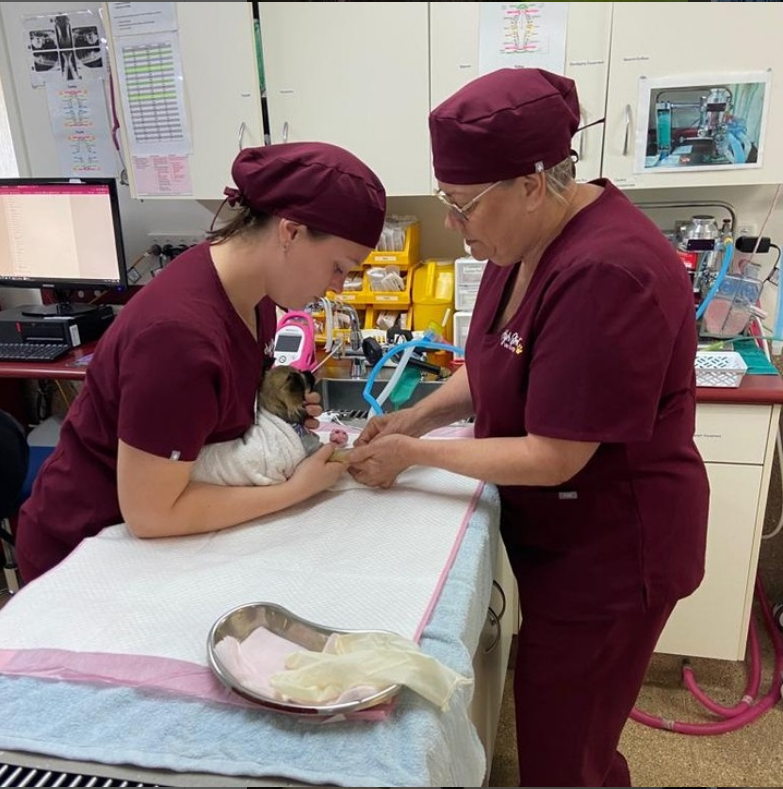Symptoms Of Black Widow Spider Bites in Dogs and First Aid Administration
If your dog has been bitten by a black widow spider, you will understand that it is not an experience any dog owner wants to have because it is a very dangerous one.
Black Widow Bites in Dogs can have severe consequences and should be taken seriously. When a dog is bitten by a black widow spider, it can experience a range of symptoms due to the potent neurotoxin injected by the spider. These symptoms may include marked paralysis, muscle tremors and cramping, abdominal rigidity, severe muscle pain in the back, chest, and abdomen, trouble breathing, excessive salivation, increased blood pressure and heart rate, incoordination, vomiting, and diarrhea.
The severity of the symptoms can vary depending on factors such as the amount of venom injected, the size and health of the dog, and the location of the bite. Prompt diagnosis is crucial and is based on the history of exposure, clinical signs, and the exclusion of other possible causes.
The prognosis for dogs bitten by black widow spiders depends on the severity of the envenomation, the timeliness of treatment, and the presence of any complications. With prompt and appropriate treatment, most dogs recover well while some dogs may suffer permanent damage or even die.
Although the exact incidence and mortality rate of black widow spider bites in dogs are unknown. While there were 1,015 reported cases of black widow spider bites in humans in the United States in 2018, the cases in animals, including dogs, are not routinely reported or recorded. Therefore, it is difficult to determine the true extent of the problem.
Studies have suggested that the mortality rate of black widow spider bites in dogs can range from 5% to 15%. This can vary depending on factors such as the availability of antivenom and the quality of veterinary care provided. It is important for dog owners to be aware of the potential risks and take preventive measures to protect their pets.
Prevention is key in avoiding black widow bites in dogs as it is important to avoid contact with black widow spiders and their webs, which are typically found in dark, secluded, and dry places like woodpiles, garages, basements, sheds, and crawl spaces. If a black widow spider is spotted, it should be removed carefully or killed with insecticide.
If a dog is suspected of being bitten by a black widow spider, immediate veterinary care is necessary as early intervention has been known to greatly improve the dog’s chances of recovery.
How to Identify and Avoid Black Widow Spiders in Your Dog’s Environment
To effectively identify and avoid black widow spiders in your dog’s environment, there are several key steps you can take. First and foremost, it’s important to be able to recognize these dangerous spiders. While the red or orange hourglass-shaped mark on their abdomen is the most recognizable feature, it may not always be visible. Look for other characteristics such as their shiny black color, large size (about 1.5 inches), and long legs.
- Black widow spiders tend to prefer dark, dry, and secluded areas where they can build their irregular and tangled webs. Common hiding spots include woodpiles, garages, basements, sheds, crawl spaces, mailboxes, patio furniture, and under rocks or plants. Regularly inspect these areas and remove any webs or spiders you come across, using gloves and a container or insecticide.
- It’s important to note that black widow spiders are not aggressive and will only bite if they feel threatened or disturbed. Teach your dog to stay away from spider webs and avoid putting their nose or paws in places where spiders may be hiding. When walking outside, keep your dog on a leash and check their fur and skin for any signs of bites after coming indoors.
- Use preventive measures to keep pests away from your dog and your home. This includes using bug spray specifically formulated for dogs, administering monthly preventive medication, and keeping your yard free of debris that may attract spiders.
Dogs are preciouses pets and most times act rationally so you need to do everything possible to keep them away from danger so to prevent them from being in situations that may end up permanently damaging them.
What to Do If Your Dog Gets Bitten by a Black Widow Spider
If your dog gets bitten by a black widow spider, it is very important to take immediate action as a black widow spider bite is a serious emergency.
Applying first aid treatment to black widow spider bite on your dog can help your dog because black widow spider venom can cause severe pain, muscle spasms, and paralysis which will bring a very serious discomfort to your dog.
Do not try to ignorantly take care of the situation as you may end up making your dog’s case more severe instead do the following.
Look for the signs of a black widow spider bite
These include two tiny puncture marks at the bite site, extreme pain, and symptoms that may appear within 30 minutes to 8 hours after the bite. These symptoms can include excessive salivation, restlessness, abdominal rigidity, trouble breathing, vomiting, and diarrhea.
Keep your dog calm and still
The more your dog moves, the faster the venom spreads through the body. Try to comfort your dog and prevent it from scratching or licking the bite area.
Apply a cold compress to the bite
Use a clean cloth dampened with water or filled with ice and apply it over the bite for 15 minutes each hour. This helps reduce pain and swelling.
If possible, elevate the bite area
Raise the part of the body where the bite is above the level of the heart. This helps slow down the circulation of the venom.
After applying the cold compress and elevating the bite area, apply an antibiotic ointment. Use a topical antibiotic cream or lotion to the bite to help prevent an infection.
Take your dog to the vet immediately
Do not try to suck out the venom or apply any home remedies, as they may worsen the condition or cause infection. Prompt and appropriate treatment is essential, as a black widow spider bite can be fatal. It is important not to try to suck out the venom or apply any home remedies, as they can worsen the condition or cause infection.
At the vet, the bite will be diagnosed based on the history of exposure, clinical signs, and exclusion of other possible causes. The vet will administer antivenom, which is the most effective way to neutralize the venom and prevent further damage. However, it’s important to note that antivenom is not widely available and may have side effects such as allergic reactions.
Supportive care will also be provided by the vet, including IV fluids, pain medications, muscle relaxers, oxygen therapy, antibiotics, corticosteroids, and antiemetics. These treatments help relieve symptoms and prevent complications.
The vet will monitor your dog’s condition and wound site until it has healed. They will also provide guidance on how to help your dog recover from the bite and prevent infection.
Prevention is better than cure, always take care of your environment to avoid a situation where you may lose your dog to black widow spider bite. Make sure your environment is clean and always teach your dogs to avoid black widow spiders as they may not be very smart to know it themselves.



